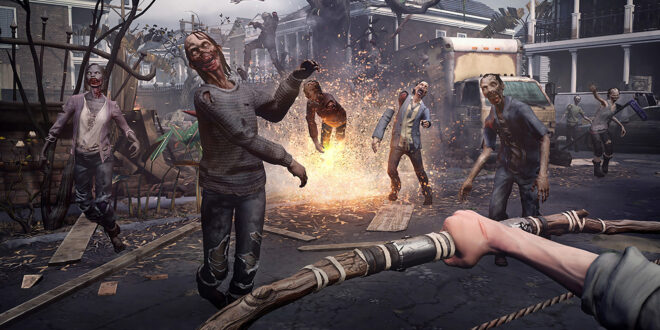The future of VR increasingly looks to be standalone headsets, rather than PC-tethered devices. That view was copmpunded yesterday when Skydance Interactive announced sales figures for its hugely popular The Walking Dead: Saints & Sinners title.
The game, which launched one year ago this week, has surpassed $29m in revenue on all platforms, a very tidy sum for a VR title, which makes it among the biggest VR titles for the year.
More intriguing was that Skydance revealed that the Quest version of the game had now sold over ten times that of the same title for Oculus Rift and Rift S.
Which shows clearly where developers of VR titles should be primarily aiming their efforts – although of course targeting all VR platforms is still the smartest move in what remains a relatively small market compared to other segments.
Bringing that market together was something we discussed recently with Arizona Sunshine developer Vertigo Games.”Hey, we can publish your game, but we can also offer you this technology to speed up your development,” said Richard Stitselaar, CEO of Vertigo Games, speaking of the company’s cross platform and crossplay technology and knowhow.
Oculus Quest was a strong offering even before the pandemic stuck, and the Quest 2 looks to have taken advantage of a largely home-nbound audience to go well beyond it. Andrew Bosworth, head of Facebook Reality Labs recently said:
“VR had a tremendous year. Oculus Quest 2 is our fastest-growing VR headset, thanks to the convergence of leading VR form factors and the content built by our developer community. Quest 2 surpassed the original Quest’s monthly active people in less than 7 weeks, and more people are using it to stay fit, play games with friends, and collaborate for work. And we are continuing to diversify our user base, with more women using Quest 2 than any of our previous headsets.”

 MCV/DEVELOP News, events, research and jobs from the games industry
MCV/DEVELOP News, events, research and jobs from the games industry




